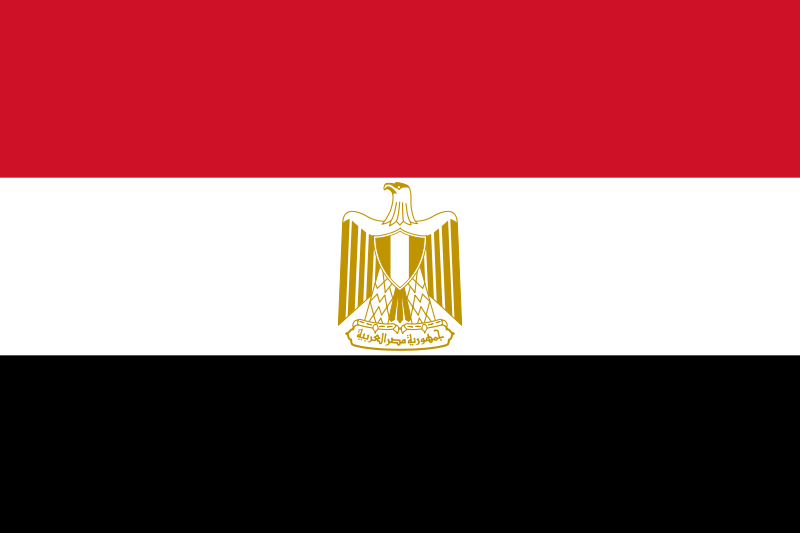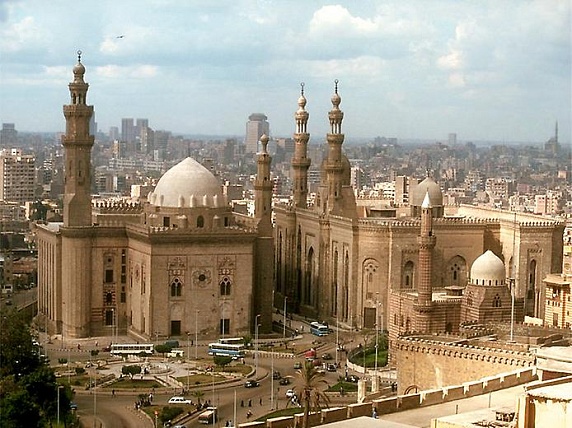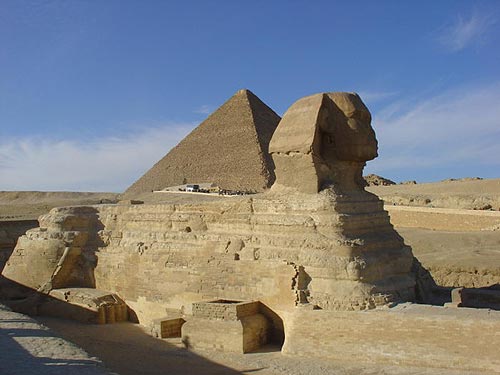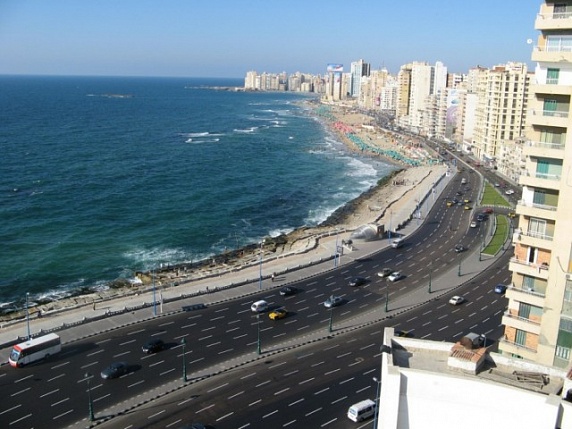 the Arab Republic of Egypt
the Arab Republic of Egypt
Speech by the Russian Foreign Minister, Sergey Lavrov, and his answers to questions from the mass media during the press conference summarising the results of the negotiations with the Egyptian Foreign Minister, Nabil Fahmy, Cairo, 14 November 2013
Ladies and Gentlemen,
Our meeting in Cairo was organised in a new format for Russian-Egyptian relations. It was the first joint visit of the heads of the Russian foreign and defence ministries to Egypt in the history of our bilateral relations. This is confirmed by the priority significance which we attach to the development and strengthening of Russian-Egyptian ties.
For us Egypt is not only the leading country in the Arab world, but also a time-proven partner. Our people are linked by old relations of friendship and mutually respectful cooperation,with roots deep in our history, which have lately reached a strategic level.
My negotiations with Nabil Fahmy have become the continuation of our Moscow talks two months ago, on the 16 September, when the Minister visited Russia. Today, as then, our conversation, of course, touched upon the development of the situation in Egypt, and we confirmed and do confirm that Russia is interested in seeing the Arab Republic of Egypt as a stable state with sustainably developing economics and an effective political system. We expect that the work, which is being carried out now, including the preparation of a new Constitution, the referendum on this vital principal of law, will allow the country to move on in the direction which will bring Egypt to a desirable goal. At the same time, the Russian Federation always believes in the principles of non-interference into the domestic affairs of any country, we respect the sovereignty of Egypt and the right of the Egyptians to determine the fate of their country independently.
We discussed some practical aspects of our bilateral relations, our joint work for the purposes of deepening our multi-profile dialogue and interaction. In this context, we devoted particular attention to the task of the renewal of the work of the Joint Russian-Egyptian Commission for trade and economic cooperation. We agreed to conduct an expert meeting in the near future. Propositions are being prepared, by the Russian party,including investment interaction in the area of energy and other areas of heavy industry, and the creation of new capacities for manufacturing of construction and transport machinery. Our Egyptian colleagues also shared the` areas of economics and their national economy, in general, in which they would be interested in mutually beneficial ties with Russian partners. We also agreed to prepare propositions, which would establish our exchanges in the area of science, culture and education on a sustainable long-term basis.
We agreed as well to continue to develop our dialogue on tourism intensively – this is a very important area in our relations. The stabilisation of the situation in Egypt, the cancellation of the state of emergency (I understand only yesterday) will allow us to restore our volume of cooperation in the tourism area. I am convinced of this. As I understand it, other countries, whose nationals love to take holidays in the wonderful Egyptian resorts, are reaching the same conclusions.
We are having detailed discussions of the issues related to our political dialogue. Of course, the prospects of military and technical cooperation were the subject of negotiations between my colleague Sergey Shoigu and the First Vice Prime Minister, the Defence Minister of the Arab Republic of Egypt, Abdel Fattah el-Sisi.
Due to well-known reasons, priority attention on the international and regional agenda was attached to the state of affairs in countries of the Middle East and North Africa, in the context of the deep changes which have overtaken this region.
We have close approaches with regard to the need to convene the international conference Geneva-2 as soon as possible to settle the Syrian crisis through a direct dialogue between all the Syrian parties with the support of the world community. We are grateful to the Egyptian party for its active position on this issue in the interests of a peaceful, political settlement.
We share a positive assessment of the work, which is being carried out now, to eliminate Syrian chemical weapons. The work continues actively, without interruption. We also share the understanding that the drastic changes in the Arab world should not overshadow the resolution of the Middle East's key problem – the comprehensive and fair Arab-Israeli settlement on the basis of known international legal foundations: UN resolutions, Madrid principles and, of course, the Arab Peace Initiative, which was supported not only by all the LAS members, but also by the Organisation of Islamic Cooperation in general. We support the constructive role of Egypt in its contribution to the renewal of Palestinian-Israeli negotiations, the resolution of the tasks of ensuring security in the Sinai.We had a very valuable exchange of opinions on the issue of the situation around the prospects of creation of a WMD Free Zone in the Middle East. We share the point of view that we need to implement the decisions, adopted in 2010, and to convene an international conference to discuss the issues of creation of a WMDFZ in the Middle East.
The negotiations confirmed the valuable nature of regular consultations between our foreign services. They help better evaluate one or another of the aspects of the state of affairs in the region of the Middle East and North Africa and develop adequate steps, including joint steps, which (we hope) will help stabilise the situation.
Question: How do you assess Egypt and Russia becoming closer? Isn't this evidence that relations with other states may be aggravated, or are these strategic relations?
Sergey Lavrov: If I understood the translation correctly, you asked, whether this visit means temporary aggravation of Egypt's relations with others. I do not know what to say here. We have been friends with the Egyptian people for many decades, we have a rich common history, including our joint political struggle for fairness in the world. We do not make friends to the detriment of somebody else. It is time to get used to the idea that in the modern world we need to leave such an approach in the past and live in the space we have, which exists and in which every country should decide of its own accord, whom it will develop relations with and determine the range of its partners.
I repeat, we are friends with the Egyptian people, we are strategic partners and we do not make friends to the detriment of anybody.
Question: Will the previous flow of Russian tourists to Egypt be restored?
Sergey Lavrov: I already talked about tourists. But you have asked, whether our visit means that Russian tourists will return. Well, they have never disappeared from here! We have about a hundred flights between Moscow and Egyptian resorts every week. Tourists have the right to decide for themselves, where they wish to go, while the obligation of the Ministry of Foreign Affairs is only to warn them, if there is a threat to security in any of the countries (and there were such threats). Nobody banned anything for anybody.
As to recommendations made by us when required, as I have already said in my introductory speech, we will consider the situation, taking into account the stabilisation of the situation, the cancellation of the state of emergency, and assessments and announcements made by the foreign services of other countries.
I emphasize that Russian tourists take holidays in Sharm el-Sheikh and Hurghada, spend their money and have fun. We are grateful to the Egyptian authorities that they pay special attention to ensure security in the Sinai Peninsula and especially in resort areas. We hope they will carry on in the same way.
Question: Will durable relations between our countries be restored? Will Russia participate in large projects in Egypt, such as were implemented in the 1950's–1970's?
Sergey Lavrov: As to the prospects of our economic cooperation, I have already announced in my introductory speech, that we are preparing a session of the Intergovernmental commission. We will start with an expert meeting. I repeat, there are several propositions, including on the modernisation of the sites, which were constructed by the USSR, as well as on the creation of new sites.
Question: The LAS has made many decisions in the history of the Syrian crisis about the suppression of some of its participants. Don't you think that this organisation must take some other position not only in the issue of the resolution of the Syrian crisis, but also in other problems in the Middle East? What is your opinion about Egypt's participation in this organisation?
Sergey Lavrov: I have already mentioned, the LAS is our partner. We support that the Arab Peace Initiative, along with UN decisions, is at the basis of the efforts which are being undertaken to settle the Palestinian problem. We think that the League could deal with it more actively. We, like Egypt and other countries, support the efforts of the United States to renew the Palestinian-Israeli negotiations. However, the negotiation process is pretty tough. Of course, additional support will not harm this process.
As to the position of the LAS in the Syrian crisis, it is well known. The attitude to it is also known. We think that several hasty decisions were taken in the last two years. I think that it is very important to stick to the foundation principle of the work of the LAS – the consensus. Overall, when we say that Russia is sincerely interested in a stable and dynamically developing Egypt, this is not only our wish that the Egyptian people should feel better, but it is also (if you want) in the interestsof our foreign policy, because we want Egypt to play the role of the leading Arab country actively to the maximum.
Question (to both ministers): Have you felt a rapprochement in the issue of the Palestinian-Israeli Peace Process and the solution of the Syrian crisis? How can the Egyptian initiative to free the Middle East region from WMD be implemented in practice? Will the conference, which was expected in 2012, be convened?
Sergey Lavrov (answers after Nabil Fahmy): We do not need to bring our position on the Palestinian problem closer, because we share it with Egypt – we need to ensure there is a decision between the two countries on the available international legal basis. I have already talked about this.
We do not need to make our positions on ways of settlement of the Syrian crisis closer: we categorically insist on the unacceptability of a military solution – this is our common position. We are for political settlement. We support the convention of the Geneva-2 Conference for this purpose. We share an understanding of the optimum composition of the participants at this conference. We would welcome the active role of Egypt as an "external player". We also share the understanding that in parallel with the political process we all need to be aware of the terrorist threat, which is growing in Syria with every passing day and is already starting to affect other countries, including, for example, Iraq.
Our conversation was very valuable and showed that we can use this channel of Russian-Egyptian relations to create conditions for the convention of this conference.
As to a WMDFZ (I have already spoken about it in my introductory speech), this is not somebody's initiative, but rather the decision of the UNSC, as well as the Review Conference of NPT member states, which was held in 2010. It stated clearly, on the basis of a consensus, that it was necessary to convene a conference to consider practical issues of creation of the WMDFZ in 2010. We do not need to bring our positions closer here – Russia and Egypt are for its fast convention. Preparatory expert consultations, which are currently being conducted between countries of the region with the support of three depositories of the non-proliferation treaty and the Finnish mediator, must allow the definition of the date for the convention of the conference and determine its organisational points. Our Egyptian friends are preparing their respective propositions. We will be ready to review them.
Question: Would you please comment on the problem of the humanitarian crisis in Syria?
Sergey Lavrov: I can say with regard to the humanitarian crisis in Syria that the situation is very bad there. Russia provides aid by allocating voluntary contributions to different humanitarian agencies, including the World Food Programme. Incidentally, these contributions are allocated to both the Syrian government and the countries which accept refugees. We have allocated 10 million US dollars to Lebanon and Jordan only recently. Beside these contributions, we regularly send humanitarian aid – food, clothing, tents, and medicinal products. We are activelyattempting to ease the sufferings of the Syrian people, but we need to do it without politicisation. The UNSC have made their respective statements, in which steps are laid down, which should be undertaken according to the provisions of international humanitarian law. We should not violate these provisions.
There are attempts to speculate on the difficulties of the Syrian people in order to advance ideas of external interference through the UNSC, this time putting forward the humanitarian issue. I assure you, that these attempts will not develop. Incidentally, after recent Russian-American consultations with the Special Envoy to Syria, Lakhdar Brahimi, on issues of preparation of Geneva-2 in Geneva, there were meetings devoted to the same topics with representatives of the LAS and Turkey. After that, all the participants met the humanitarian agencies operating in the Syrian Arab Republic. The heads of these agencies did not panic. They explained how they work on the solution of specific issues, including poly-vaccination (there have been several cases of poliomyelitis) and many other things. They did not say that the government refused to cooperate. On the contrary, militants cause the most problems for the activity of humanitarian agencies – it is a well-known fact. Therefore, we fully support more active aid in solving humanitarian problems, and there is no need to speculate on them. We are talking about the lives of people, old people, children, and it is just blasphemous.
Question:The heads of the United States and France stated during their recent phone conversation, that their countries fully agree to the single proposition of the P5+1 on Iran and the current approach to these talks, as well as saying that they view this proposition as a reasonable step, which will allow everybody to obtain an assurance of the peaceful nature of Iran's Nuclear Programme. We would also like to hear a comment about this, as well as to know your opinion whether an agreement may be reached at the next meetings between the P5+1 and Iran in Geneva. Can a ministerial meeting be held?
Sergey Lavrov: I was not a party to the phone conversation between the presidents of the United States and France. If the lines, which you have read, are an official message about this talk, and it truly says that there is a single proposition from the EU3+3 to Iran, then it is better not to talk about the details of these negotiations until their end. However, if the White House decided to report about a single proposition from the P5+1 group, then I need to make a small clarification.
The EU3+3 did not develop any documents this time. There was an American project, which was finally supported by Iran. We actively supported this project along with some other P5+1 members. It would be adopted, if it were accepted by everybody, and we would already begin work on the implementation of the agreements contained in it. However, several amendments were prepared for it, and we have not seen them. The amended version was distributed at the last moment, when we were already leaving Geneva. As we have already said, at first glance, we do not see any significant problems regarding the content of these amendments, however the language of these ideas should be acceptable for all the participants in this process – the EU3+3 and Iran. And this is what happened.
Our colleagues chose to use the term "single proposition of the EU3+3", however, there was no such proposition. It was and is an American document with amendments to it. All this will be further revised at the level of political directors, whose meeting (as you know) is scheduled for the 20 November. This meeting will show how it is all to end. I hope that everybody shows an understanding of the importance of the available agreements and a special understanding of the need to present them as an agreement rather than as some document, which is not collective.










